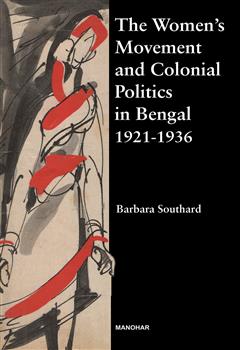The Women's Movement and Colonial Politics in Bengal 1921-1936
Availability :
In Stock
₹ 1,148.40
M.R.P.:₹ 1595
You
Save: ₹446.60 (28.00% OFF)
(Inclusive
of all taxes)
Delivery:
₹ 130.00 Delivery charge
Author:
Barbara Southard
Publisher:
Manohar Publishers
ISBN-13:
9788173040597
Publishing Year:
August 1995
No. of Pages:
317
Weight:
1 kg
Language:
English
Book Binding:
Hardcover











